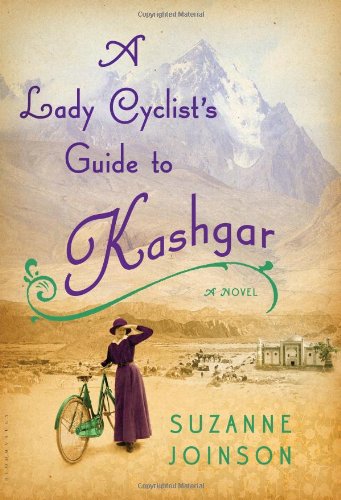[amazon_link id=”0670023647″ target=”_blank” container=”” container_class=”” ] [/amazon_link]Historical thriller “The Orphanmaster” releases June 19th. Here is an interview with the author :
[/amazon_link]Historical thriller “The Orphanmaster” releases June 19th. Here is an interview with the author :
You’ve had considerable success as a writer of nonfiction. How did it feel to make the transition to fiction?
I’ve always considered it an incredible privilege to write nonfiction, as you get to snoop in private lives via letters, diaries, etc., in order to tell your story. That said, in writing on some historical subjects, particularly the lives of women, these sources are not always readily available. I found that I could use the research I had done and expand upon it imaginatively in a way that was extremely satisfying.
To produce its powerful effects, THE ORPHANMASTER mingles historical fact with some imaginative storytelling. What are some of the more surprising discoveries that you happened on in your research?
I found a map that was drawn in 1660, the first street plan of Manhattan , which conveys every street, structure, meadow and garden in the settlement. It was the world of my characters, and it was the geographical jumping-off point of my work. Also vital was the discovery of the orphanmaster function, an official job that was needed because of the dire trend toward parental deaths through sickness, shipwrecks or Indian incursions. And I also was surprised to learn about the sport of pulling the goose!
Your novel goes rather hard on one of your real-life historical figures, Governor Petrus Stuyvesant. Why were you so rough on him?
Stuyvesant was a complex man. Not readily likable because of his high-handed policies—no one wanted the taverns shut on Sundays!—he also created order in a time when New Amsterdam was going a bit out of control. He was somebody whose domineering personality would definitely create friction with the other characters I portray. Historically, he was so hated that the colonists refused to fight alongside him to resist the English takeover in 1664.
One of your nonfiction books concerns a colonial-era she-merchant similar to THE ORPHANMASTER’s heroine, Blandine van Couvering. What are the major differences between the fictional heroine and her real-life precursor?
For my earlier book, The Women of the House, I researched a trader named Margaret Hardenbroeck, who through smarts and sheer force of will became the richest woman in the colony that would become New York . She-merchants were common in New Amsterdam , where there were roughly two hundred female traders out of a population of 1,500 settlers—a very high percentage. Women such as Margaret Hardenbroeck (and Blandine van Couvering in THE ORPHANMASTER) loved the excitement of commerce, especially the high-end, high-status commodities like fur. Blandine is a young merchant, still earnestly trying to work her way up. But she feels the thrill of trade in her bones.
Blandine knows a surprising amount about seventeenth-century armaments and, by extension, so do you. How did you come by your expertise?
Research is a writer’s best friend, an area of my work that I have come to love and rely upon in nonfiction. And weapons are a fascinating subject to learn about. They were crucial to the lives of the people of the New Netherland frontier. Although not much of a gun freak myself, I read in the field and consulted with people I know who are knowledgeable.
In Blandine and in the villain Martyn Hendrickson, you present an interesting theological diptych: one atheist whose character we find ourselves admiring and another who is utterly contemptible. What thoughts did you mean to suggest by introducing the implied comparison between the two?
While Martyn has abandoned God altogether, or has completely subverted Christian ideals to his own twisted ends, Blandine is in quest of a new definition of God. Ever since the incomprehensible tragedy of losing her parents and sister in a shipwreck, she no longer finds the idea of God as personal savior compelling. Blandine is a questing soul, searching for a new belief system, while Martyn has settled upon a particularly vicious form of nihilism.
In a fairly early chapter, you ask, “How does the superior man live in a godless world Nice question. Any answers?
Drummond’s hallmarks are courage, kindness and reserve. He feels the need to change the picture, to change his idea of god, so he does not, indeed, inhabit a godless world. In this, he attempts to align himself with a larger order, terrible and immense, that he especially perceives in the staggering beauty of the natural world.
Your hero, Edward Drummond, observes that in an old-world cathedral it’s easy to believe, whereas in the American wilderness it is supremely difficult to maintain that God exists. And yet, historically, America ’s religious revivals have been especially vigorous in remote, rural areas, where God is felt to be present in the silence of the natural world. Is Edward just wrong, or is there some way to defend his observation?
We have to remember the seventeenth-century first-growth wilderness that confronted Drummond was very different from the tamer, well-explored woods and cultivated farmlands of the eighteenth- and nineteenth-century Great Awakenings. God for Drummond cannot be defined in human terms, since that would be a prideful distortion of such immensity. Rather, he sees the sacred as “[a]n entity, an endlessness, a totality.”
THE ORPHANMASTER features scenes of horrific violence and mayhem—possibly off-putting to some, certainly engrossing to others. What emotions do you yourself experience when writing these portions of your novels?
It’s really more about telling the story, getting the characters right, considering how they relate to each other. That’s what makes creating a thriller exciting and powerful. At the same time, I myself did feel challenged at some points in the writing, and sad when some characters suffered or didn’t survive.
Drummond’s idea of God is strongly shaped by his reading of Baruch Spinoza. For the uninitiated, can you briefly explain Spinoza’s philosophy of religion and why it might appeal to someone like Drummond?
Drummond has lived a full life and has seen violent and challenging things. He is embittered and yet still searching for meaning. Spinoza was the supreme rationalist. He wore a signet ring with the inscription “cautiously,” and proposed treating theological questions in the same way a mathematician, for example, might treat a triangle. In Spinoza’s view, which Drummond is coming to adopt, the old-world god has ceased to exist, to be replaced by a more abstract, less personal but more powerful sense of the sacred.
One of your minor characters opines, “The day when a corporation is accorded the same standing as a country, with all the rights attending to that status, will be a sad day indeed.” That also sounded like a somewhat “presentist” comment to us. Any thoughts?
Since all writers exist in the present, all writing is unavoidably presentist. I would say that it is natural to use your current-day intellectual framework even when you write about the past. It would be dishonest not to. And it can be fun to enliven a historical text with sidelong glances at the modern. But I also believe the rules are different for fiction, nonfiction and memoir. At times I enjoy engaging in what I hope is a playful insouciance.
Are there other ways in which you think your novel can be read as a commentary on present-day America ?
At the time of THE ORPHANMASTER, eighteen languages were spoken in New Amsterdam . The makeup of Manhattan is much the same today—immigrants, businesspeople, criminals, orphans, women striving to make something of themselves. The novel addresses in some part how the various ethnicities and races get along with each other. The heroine and hero of the book are the ones that show the most tolerance, understanding and sympathy for other people, even those not like them superficially. This is our mandate for today as well.
What remains today of Blandine and Drummond’s New Amsterdam ?
The Manhattan of today is still haunted by the ghost of New Amsterdam . New York ’s commercial imperative and devotion to progress have buried the past in cement, but the streets of the past exist largely as they did. You can walk Stone Street , Pearl Street or Broadway and see just where Blandine kept her dwelling-house or where she made her way across the canal at low tide. You can feel a poignant vestige of what was, and if you imagine intently, still hear the creaking of the Dutch windmills.
What are you working on now?
A novel about a girl who was raised in the wild, displayed at a sideshow in Virginia City , Nevada , and adopted by a well-to-do couple in 1875 Manhattan to be trained up as a debutante. Mysterious killings ensue, and she must track down the murderer before he gets to her. A darker side of the Gilded Age.
What inspired you to center your book on the year 1663?
It was a period of transition and discovery, danger and excitement. Colonists were arriving in Manhattan to create new lives for themselves. Beaver was king, and fortunes were being made in the fur industry. I chose the precise year because the frictions between Holland and England were about to play out in a way that ultimately gave us the culture we have today.
 [/amazon_link]Title : Harmless as Doves
[/amazon_link]Title : Harmless as Doves [/amazon_link]I’m excited to be previewing “Age of Desire” by Jennie Fields. A review will follow shortly. Meanwhile here is a little about the book and a Q&A with the author.
[/amazon_link]I’m excited to be previewing “Age of Desire” by Jennie Fields. A review will follow shortly. Meanwhile here is a little about the book and a Q&A with the author.
 [/amazon_link]Title : Earth Unawares
[/amazon_link]Title : Earth Unawares [/amazon_link]Title : A Lady Cyclist’s Guide to Kashgar
[/amazon_link]Title : A Lady Cyclist’s Guide to Kashgar [/amazon_link]Title : Imperfect Bliss
[/amazon_link]Title : Imperfect Bliss [/amazon_link]This book, a translation of the original was published last month. Here is a little about it (per publisher mail):
[/amazon_link]This book, a translation of the original was published last month. Here is a little about it (per publisher mail): [/amazon_link]Title : The Age of Miracles
[/amazon_link]Title : The Age of Miracles [/amazon_link]Title : Little Night
[/amazon_link]Title : Little Night [/amazon_link]Historical thriller “The Orphanmaster” releases June 19th. Here is an interview with the author :
[/amazon_link]Historical thriller “The Orphanmaster” releases June 19th. Here is an interview with the author :
